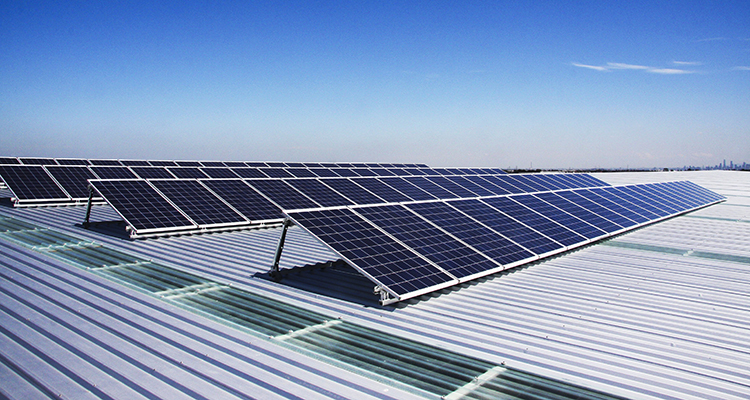Britain: Demand for PV among corporates remains strong
While Brexit is rocking the British economy, there is a continuous demand for solar among corporates. However, confidence seems to diminish as a lack of ambition in the governments’ Clean Growth Strategy and Brexit uncertainty cause insecurity among the industry.
Brexit is looming, and it brings unwelcome uncertainty to Britains’s energy industry. Nevertheless, the latest quarterly update of the Energy Efficiency Trends report – released by the Energy Efficiency Verification Specialists (EEVS Insight) – states that the solar demand among corporates remains strong. Together with Bloomberg New Energy Finance, EEVS Insight have found, however, that uncertainties regarding subsidies and/or policies are constantly growing among corporates. The update is largely based on surveys as well as the participating corporates’ appraisals regarding the third quarter of 2017.
Brexit and government’s demotivation may threaten demand
While the demand for energy efficiency technologies is still strong, various factors may strongly impact it in the near future. Firstly, Brexit is taking its toll on the British economy, as it causes much uncertainty among investors, corporates and clients. Secondly, the government has recently been found to be rather demotivated regarding the Clean Growth Strategy, causing a lack of confidence in the country’s current politicians.
This crumbling trust has been proven in recent surveys, where only 11% of the participants claimed to find the current energy policy efficient – as compared to almost 60% that said the exact opposite.
Government ministers “struggling for ideas“
“The industry feedback gives a clear message,“ Matthew Farrow, executive director at the Environmental Industries Commission, explained according to solar news website Solar Power Portal, “the Clean Growth Strategy target for energy efficiency lacks ambition, existing policies should be toughened up and tax incentives, EPC and ESOS reforms should be considered.“ While EPC (Engineering, Procurement and Construction) is a form of contracting arrangement that is used globally, ESOS stands for Energy Savings Opportunity System and is a framework used in Britain alone.
Farrow also believes the government is “struggling for ideas“ regarding ways to adapt to the “perennial challenges“ of energy efficiency policy.
Solar is strongest renewable on the market
Among the different renewable energy sources on the market, solar is the most popular and thus is the least affected by the growing insecurity. As a matter of fact, 20% of corporates who participated in EEVS Insight’s survey claimed to have recently invested in solar. Besides that, average payback periods for corporate investment have risen constantly in the past three years, proving that corporates are more prepared to invest in more expensive measures – a positive development.





